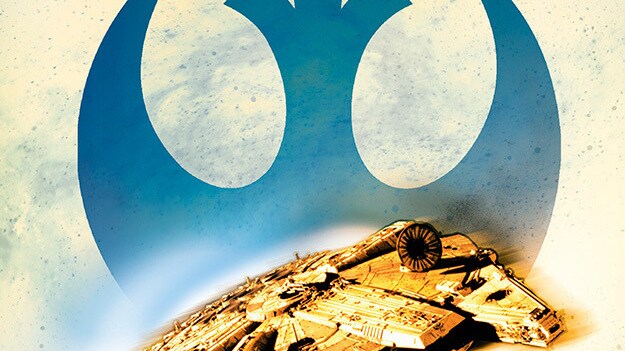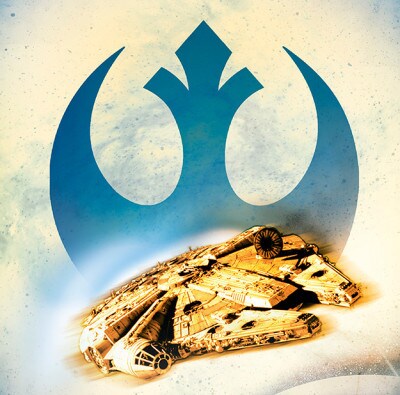On the surface Han Solo is an “easy” character -- a wise-cracking scoundrel with a penchant for getting in over his head. But for authors who want to really capture the sum of Han’s parts, it’s not quite as easy as it looks, especially post-Episode IV. He’s a mercenary, but he’s currently hooked up with a non-profit operation. He looks out for himself, but it’s his friends that are keeping him around. Author James S.A. Corey does a great job of handling this balancing act in the new book, Honor Among Thieves, out this week.
Corey gives us a Han who still isn’t entirely sure why he’s hanging around this group of do-gooders...a group that doesn’t always espouse ideals that Han entirely agrees with. After all, if the Rebellion succeeds, then they’ll become the new authority -- and it’s authority that Han has a problem with in the first place. (It’s not like a Rebellion-led government is going to suddenly say that smuggling is okay.) It’s a part of Han that we don’t always like to think about -- we prefer to concentrate on the heart of gold that beats beneath his sardonic exterior, or to focus on his talent for witty retorts. But unless we explore that other part of him, we can’t truly appreciate the transformation he undergoes through the course of the films. There’s a quote from the book that I particularly love: “But always there was the voice at the back of his head telling him that by joining the Rebellion he’d become less of a rebel than he’d ever been.”
It’s this dichotomy that makes Han more than just a devil-may-care scoundrel or the comic relief. It’s part of what makes him a fully-realized character. In Honor Among Thieves the idea is taken a step further, with this dichotomy actually presented to us in the form of two contrasting characters: Rebel spy Scarlet Hark and smuggler Baasen Ray. Hark, like Han, is adventurous and daring, but is in complete service to the Rebellion; Ray, like Han, is a smuggler, but one who’s been overcome by desperation and greed. And while Han is, at the moment, in service to the Rebellion as well, he’s not really sure why:
“We’re not anarchists,” she said, tugging at the patch on one sleeve that identified her as a level-three technician. “We have goals. We want to end the Empire.”
“And replace it with what?”
“You know what,” Scarlet said. Her crossed arms matched his own. “Are you trying to make fun of me?”
“It was rhetorical. I’ve heard the speech, sweetheart. ‘A glorious return to the Republic of old.’ To a guy like me, a new boss is still a boss.”
“Then why are you helping us?”
“Honestly? Still trying to figure that one out.”
Most of us would like to think that if we had the opportunity to join the Rebellion and put an end to the Empire, we’d do so without reservation. But when you’ve spent your life on the fringes as Han has, throwing in your lot with a group that might well be the next ruling body is not such a simple step. (Even if a certain princess does keep things interesting.) I love that Corey depicts this more complicated part of Han’s character; we may already know where Han ends up, but that doesn’t make the journey any less worth exploring. And hopefully it helps keep the character fresh and compelling as we continue to try our best to bring you great new stories. Of course, to find out how it all plays out, you’ll have to pick up a copy of Honor Among Thieves! I’d love to hear what you all think.














